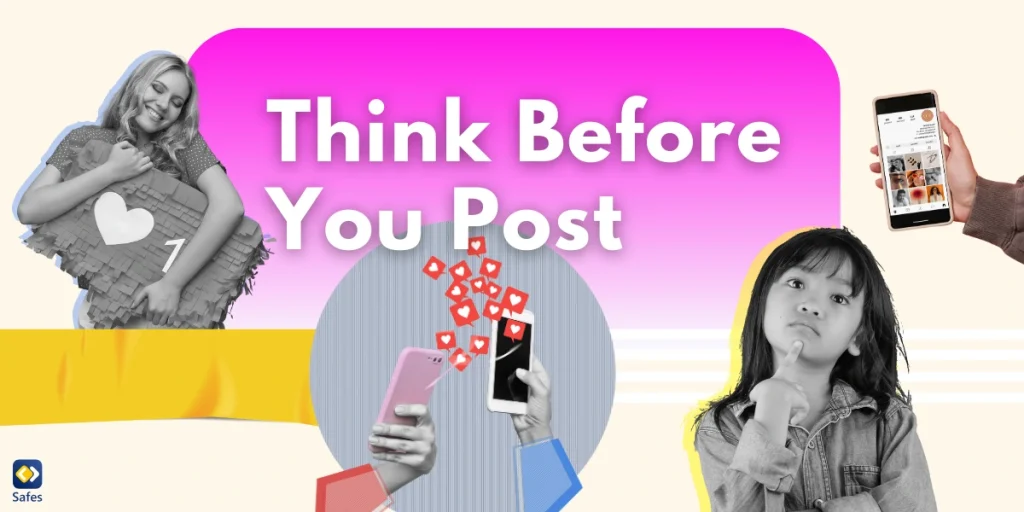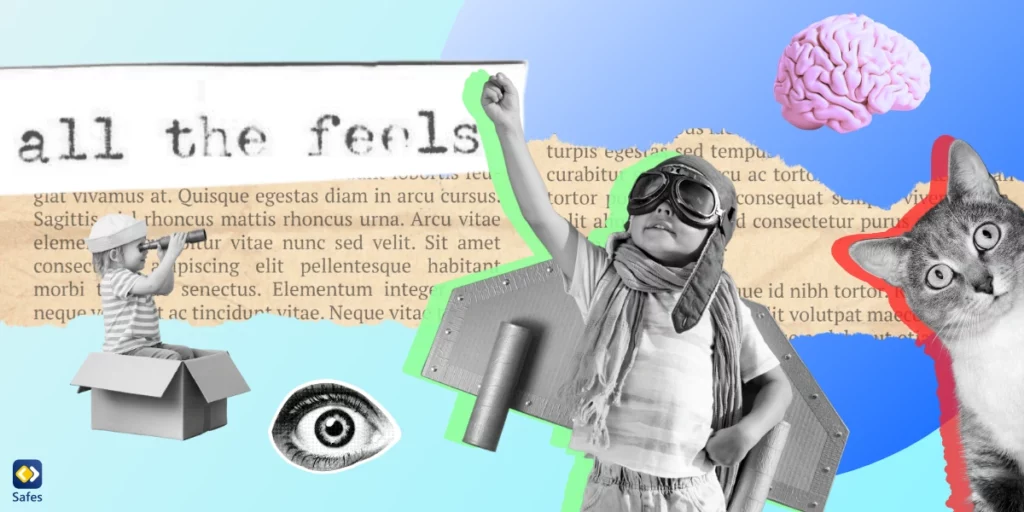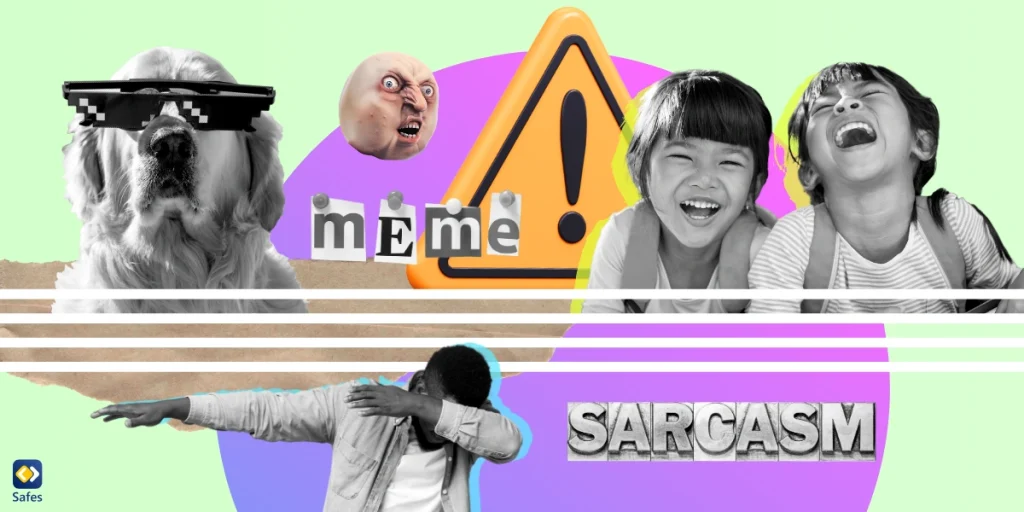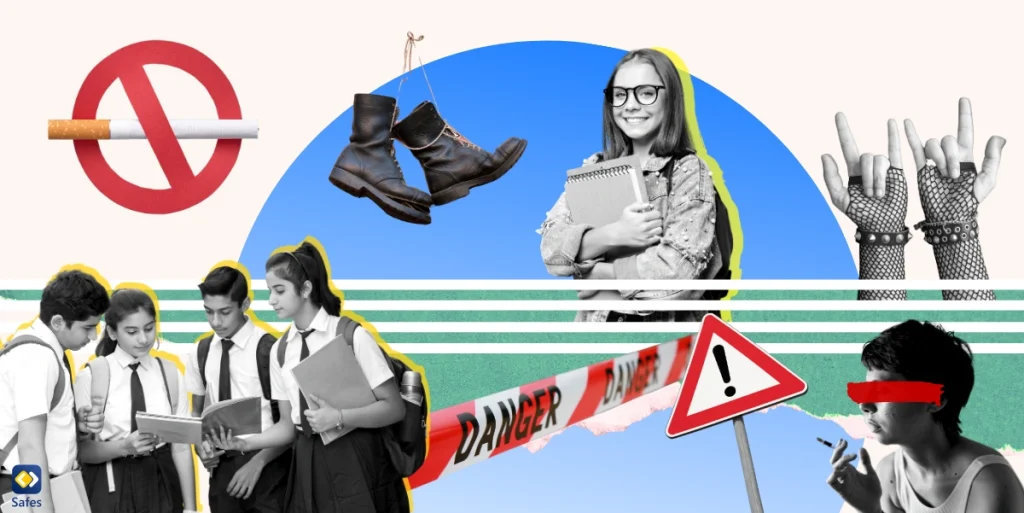Now that our children are exploring the digital world, which is full of possibilities, we parents need to learn about the potential risks and ensure their safety. Children can connect with their friends and also post pictures, texts, and videos on social media. What they post on these platforms may get them or others into trouble in different ways. That’s why the phrase “Think before you post” is something every kid (and grown-up!) should understand.
Download and Start Your Free Trial of the Safes Parental Control App
Helping kids learn to think carefully about what they share online can protect them from problems in the future. It’s about showing them how to stay safe, be kind, and respect their own and others’ privacy. In this blog, we’ll go over practical ways to teach kids to think before posting and stay safe online.
What Does “Think Before You Post” Mean?
This phrase is all about taking a moment to consider what we’re about to share online. For kids, this means pausing and asking themselves a few important questions before hitting that “post” button. It’s easy to get caught up in the excitement of sharing photos, comments, or updates with friends, but a little thought can prevent so many troubles.
When we say, “Think before you post,” we’re actually encouraging kids to consider things like:
- Is this something they want the whole world to see? Once it’s online, it’s hard to take back.
- Is the post respectful to themselves and others?
- Will it hurt someone’s feelings or lead to misunderstandings?
- Does this post give away too much personal information, like their location or personal details?
These are some think before you post examples that help kids understand that posting online is more than just a quick click but rather something that can have lasting effects. Teaching them to pause and think lets them make choices they can feel good about later.

Why Is It Important to Think Before You Post on Social Media?
So far, we discussed the think before you post meaning and learned why kids should take time to pause and think about what they’re about to post. Even if a post gets deleted, someone could’ve saved or shared it already. That’s why it’s so important for kids to get into the habit of thinking before they post. But let’s get into more detail about the importance of this phrase.
When we post too much personal info, we give others easy access to details about our lives. This can be dangerous as online predators may access this information. This is a big online threat for our kids. Therefore, it’s crucial to know how to protect your private information online. Moreover, a post made in the heat of the moment can lead to embarrassment or regrets later. Also, as what we post today can follow us for years, we need to think more before posting to avoid embarrassment and create a positive digital footprint we can be proud of.
Sometimes, your kid may not be the only one negatively affected by what they post; others may get hurt, too. Therefore, we need to encourage them to think about how their posts make others feel to build empathy. As a result, they will be more mindful about posting content that may contain bullying or other harmful behaviors toward others.
What Questions to Ask Before Posting?
Before hitting that “post” button, it’s smart to pause and ask ourselves a few questions. This is what you should teach your children who use special media to post content. This simple habit can help them share in a kind, safe, and thoughtful way. You can discuss the questions and the explanations below with your child and educate them to think before they post.
- Would it be okay if everyone saw this?
You usually can’t stop a piece of information from being spread all over the internet. If it’s something you wouldn’t want everyone to see, it might be better to keep it private.
- Does this show respect to others?
You don’t want to hurt anyone’s feelings or make someone feel uncomfortable with your posts. Respectful posts make social media a better place for everyone.
- Is this giving away too much information?
Sometimes, we don’t realize just how much we’re sharing, like our location or personal details. So, it’s important to be aware of the dangers of sharing location, banking information, and other private data.
- Am I posting this just to get attention?
If a post is just for likes or follows, it’s good to think twice. We want our posts to mean something to us, not just get reactions from others. Moreover, this attention-seeking behavior may be caused by serious reasons which should be addressed.
- Could this affect me later on?
Our online posts leave a digital footprint. Thinking about how a post might look years from now can help us make smart choices today.

Practical Tips for Teaching Kids Responsible Posting
According to an article, parents can benefit from some practical steps to help their kids post on social media responsibly. Let’s review these steps together.
- Show them responsible social media use by sharing thoughtful posts and engaging respectfully online.
- Go through privacy settings with your child on their social media accounts. Show them how to make posts viewable only by friends or close connections.
- Ask them to count to five and ask themselves questions like, “Would I be okay with my teacher or a future boss seeing this?”
- Guide kids to post things that make them feel proud, like achievements, hobbies, or acts of kindness.
- Let your child know they can always ask you if they’re unsure about a post. This creates a safe space where they feel supported in making good choices.
- Talk about real-life examples of how irresponsible posting has affected others.
- Help them analyze what they see online and ask how they would feel if they were in someone else’s shoes.
Final Word
In this blog, we discussed the importance and the best way of teaching kids to think before they post online. It’s also important to model positive behavior yourself and emphasize how this phrase is an essential practice. Want to get more control over what your children post online? Safes, our parental control app, comes to the rescue! Like Macbook parental controls, Safes helps you monitor your child’s online activities, ensuring a safe and positive experience.
With Safes, you can check the content your child posts on social media, prevent the risks mentioned before, and discuss how their posts may affect their or others’ lives. Download Safes for Android and iOS today and try our free trial to get started on a safer digital journey!
Your Child’s Online Safety Starts Here
Every parent today needs a solution to manage screen time and keep their child safe online.
Without the right tools, digital risks and excessive screen time can impact children's well-being. Safes helps parents set healthy boundaries, monitor activity, and protect kids from online dangers—all with an easy-to-use app.
Take control of your child’s digital world. Learn more about Safes or download the app to start your free trial today!




